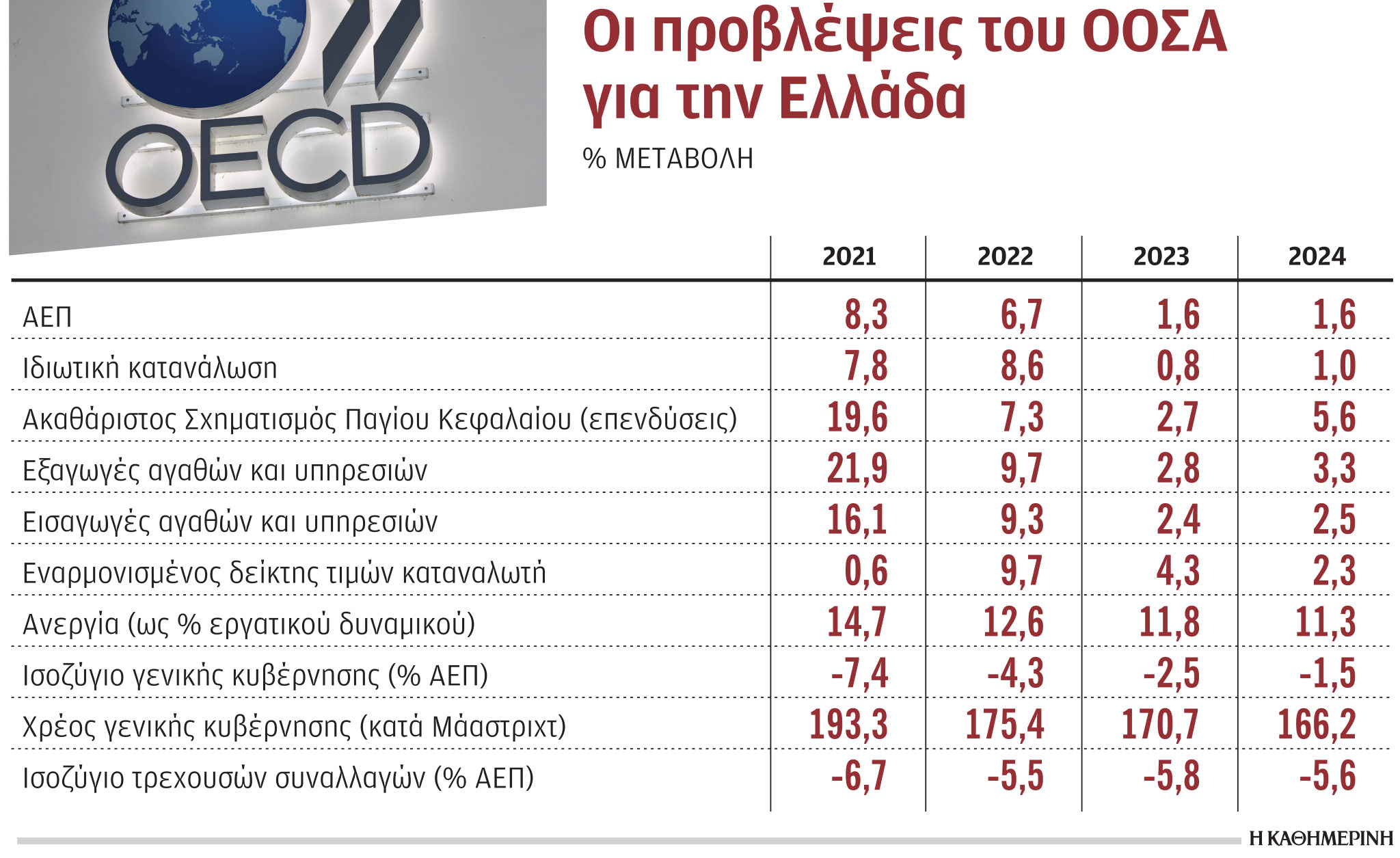
Achievement risks fiscal goals 2023 due to a possible increase in energy prices, higher interest rates, as well as elections like OECD as good as State Budget Office in Parliament, casting a shadow over the optimistic picture of the budget the day after it was presented. Indeed, a potential fiscal disruption could also delay reaching investment grade, according to the OECD.
In its Opinion on the Draft Budget Report, the Office, chaired by Mr. Frangiskos Kutentakis, notes that it considers it safe to meet this year’s financial target, but identifies significant uncertainties about next year’s target. In particular, he points out the following: “Uncertainty mainly relates to international developments, especially energy prices and the level of lending rates, which can overturn both macroeconomic and fiscal forecasts and require corrective actions. We also highlight the political risk associated with possible difficulties in forming a government due to political affiliation and a worsening climate.”
The OECD, for its part, in its World Economic Outlook report highlights the risk of strong fiscal pressure in the second half of the year if energy prices are higher than forecast or remain high in the second half of the year, requiring further support. measures. In this case, according to the agency, the investment level will be jeopardized, and the access of the Greek state to financing will become more expensive and difficult. The report also notes that spreads between German and Greek bonds have widened more than in other countries over the past year.
The government supported households and businesses with “generous eligibility criteria” in 2022, the OECD notes. Their continuation in the first half of 2023 will cost the budget 1% of GDP, and the corresponding budget reserve is 0.5% of GDP.
The OECD forecasts investment growth of just 2.7% in 2023, compared to a 15.5% budget increase.
Among the risks, he also cites the possibility of tougher sanctions on oil exports from Russia, which could hurt the relative income of Greek shipping, which in 2021 amounted to 1.6% of total shipping revenue.
The OECD report also argues that rising interest rates and uncertainty will slow investment despite the recovery fund’s bailout. In fact, it provides for an increase in investments in 2023 by only 2.7% against the forecast of a budget increase of 15.5%.
The OECD argues that support measures should be strictly targeted at the vulnerable and temporary, and this will allow the government to provide fiscal space to ease inflationary pressures. He also advocates shifting wage policy away from minimum wage increases towards collective bargaining, which would boost real incomes and productivity and contain inflationary pressures.
The OECD forecasts growth of 6.7% this year, well above the budgeted forecast of 5.6%, and will reach 1.6% in 2023 and 2024. inflation base.
He also casts doubts on the planned home loan subsidy, arguing that experience shows it will push up house prices. According to the OECD, it is preferable to allocate appropriate resources for the repair and modernization of the energy supply, which will reduce the cost of electricity in households.
Lori Barajas is an accomplished journalist, known for her insightful and thought-provoking writing on economy. She currently works as a writer at 247 news reel. With a passion for understanding the economy, Lori’s writing delves deep into the financial issues that matter most, providing readers with a unique perspective on current events.